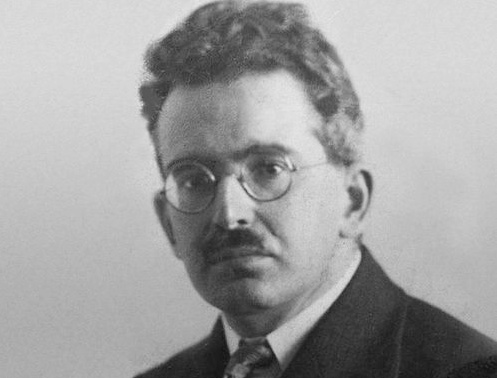
Image by Walter Benjamin Archiv, via Wikimedia Commons
Many novelists and poets—from Oscar Wilde to Neil Gaiman—have excelled at reaching adults as well as kids, but it’s incredibly rare to find an academic who can do so. Two of the few exceptions that come to mind are the ever popular C.S. Lewis and J.R.R. Tolkien, both well-respected Oxford scholars and more-than-able children’s authors. We can add to that short list a rather unexpected name—that of Walter Benjamin: apocalyptic Marxist theorist and literary critic, student of mystical Judaism and Kabbalah, mentor and friend to Hannah Arendt, Theodor Adorno, Bertolt Brecht, and Herman Hesse, and children’s radio host. During the years 1927 and 1933, while working on his monumental, and unfinished, Arcades Project and teaching at the University of Heidelberg, Benjamin also maintained a lively presence as a broadcaster, where “he found himself,” Critical Theory tells us, “writing on a variety of topics for… all ages, including children and adolescents.”
Benjamin’s youth and adult programming has been collected by Verso press in a new book entitled Radio Benjamin, which “brings together some of his most accessible” thinking. “Fascinated by the impact of new technology on culture,” writes Verso, Benjamin “wrote and presented something in the region of eighty broadcasts using the new medium of radio.” Between 1929 and 1932, he delivered around 30 broadcasts he called “Enlightenment for Children” (Aufklärung für Kinder), many of which you can hear read in the original German by Harald Wiesner at Ubuweb (German speakers, listen to an episode above). These, Ubuweb informs us, focused on “introducing the youth to various, some of them classical, natural catastrophes, for instance the Lisbon earthquake of the 1750’s that so shook the optimism of Voltaire and the century.”
Another of Benjamin’s subjects was “various episodes of lawlessness, fraud and deceit, much of it recent.” During one such broadcast, “The Bootleggers,” Benjamin wonders aloud rhetorically, “should children even hear these kinds of stories? Stories of swindlers and miscreants who break the law trying to make a pile of dough, and often succeed?” He admits, “It’s a legitimate question.” He then goes on to elucidate “the laws and grand intentions that create the backdrop for the stories in which alcohol smugglers are heroes” and tells, in fascinating detail, a few “little tales” of said heroes.
Benjamin, writes Critical Theory, played the role of “a German Ira Glass for teens,” with a kind of pop sociology that also taught lessons about language, philosophy, and class prejudice. In another episode, “Berlin Dialect,” he “celebrates ‘Berlinish,” a crude dialect of the working class that was ditched as Berliners sought to become more ‘refined.’” “Berlinish is a language that comes from work,” he explained, “It developed not from writers or scholars, but rather from the locker room and the card table, on the bus and at the pawn shop, at sporting arenas and in factories.”
The typescripts of Benjamin’s radio plays for children were seized by the Gestapo after his suicide in 1940 and “only escaped destruction by bureaucratic error.” They were only published in German in 1985. The high theorist himself apparently looked down upon this work but, Verso writes, these “plays, readings, book reviews, and fiction reveal Benjamin in a creative, rather than critical, mode… channeling his sophisticated thinking to a wide audience.” As such, these radio broadcasts may—as Jeffrey Mehlman argues in Walter Benjamin for Children—help us better understand “one of this century’s most suggestive and perplexing critics.”
Related Content:
Walter Benjamin’s Mystical Thought Presented by Two Experimental Films
Free Audio: Download the Complete Chronicles of Narnia by C.S. Lewis
Hear Theodor Adorno’s Avant-Garde Musical Compositions
Josh Jones is a writer and musician based in Durham, NC. Follow him at @jdmagness


Leave a Reply